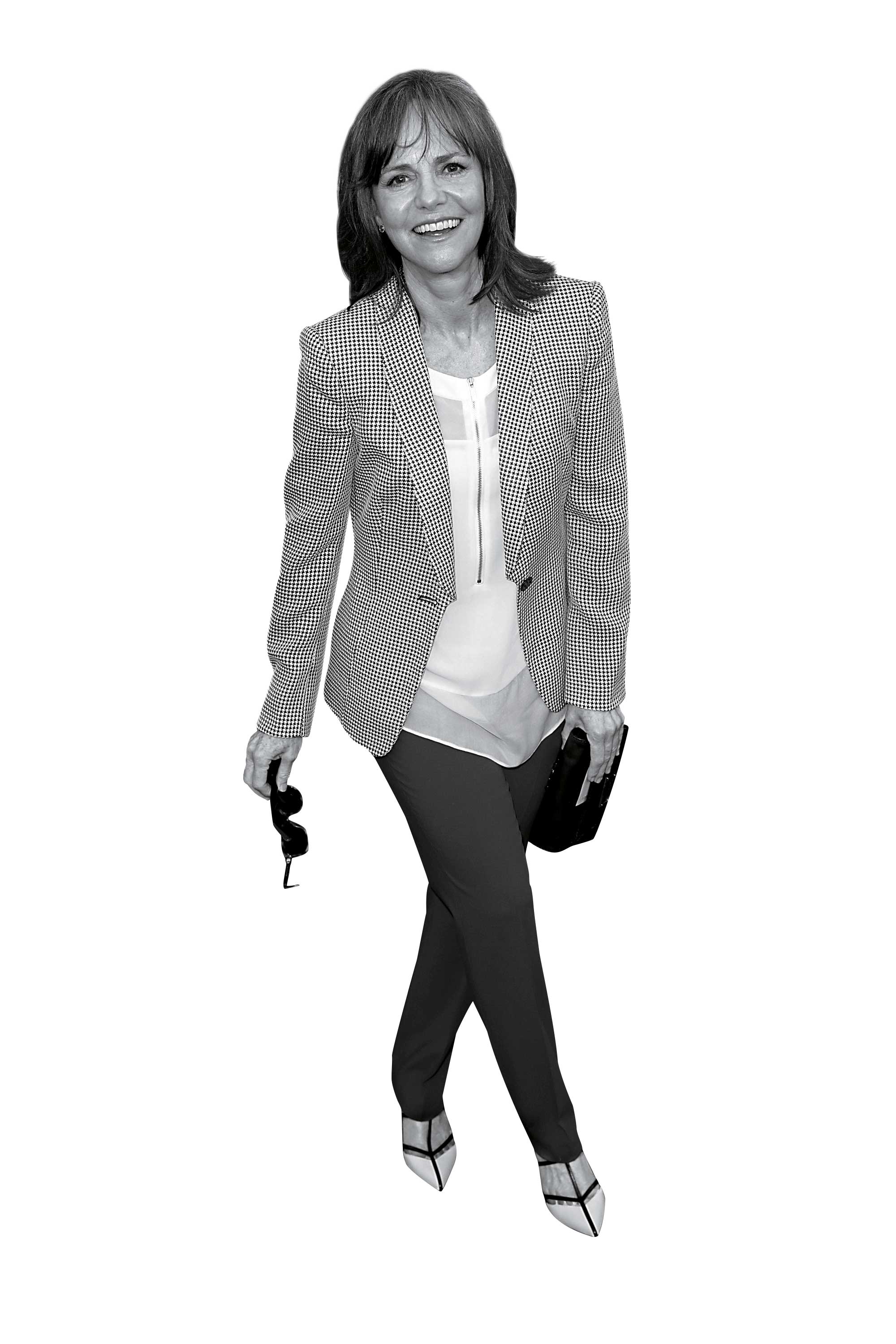
There are not many movies where the female love interest is older than the male. Is that part of why Doris appealed to you?
The gender reversal was secondary to the story of a coming of age of a person of age. I saw the love-affair part of it almost as part of her coming out of her shell as if she were 13.
Can you compare love in your 60s to love as a teenager?
When you have that feeling, when you have a mad, passionate crush on someone, it’s the same when you’re 70 as when you’re 13. You’re awkward, and you’re afraid you’re doing the wrong thing, and you put yourself out there in ways you don’t even think about. We stay who we are no matter how old we get.
You’ve done less in film in the past decade than in theater and television. Are there better roles in those places?
Certainly there have been for me. Having a long-term career is really about learning how to ride it and not be rigid. Keep asking yourself, “What really blows my skirts up?” To me it’s finding the work.
Why do you think Hollywood has been so reluctant to acknowledge the sexuality of a woman in her 60s?
It’s hard for me to answer that because obviously Hollywood is so hard on women altogether. I’ve been in this business for 53 years or something, and part of me–I hate to admit it–has sort of accepted it as the status quo. The industry has always, but certainly now to a huge degree, played to young men, and made a self-fulfilling prophecy about films that aren’t directed toward young men by saying there’s no audience for it. So they put no money in it, they don’t promote it, and then when it doesn’t make as much money as the films for young boys, they say, “You see?” There’s a whole lot of people who want to see stories that they can identify with, and they’re not male, and they’re not white, and they’re not young.
Have you seen this level of discussion about equality before?
I remember Diane Keaton once complained that men had so many more opportunities. She was shot down for being a whiner. I remember thinking, Wow. It was brave of her, but it wasn’t taken as any kind of serious comment. I felt–and Jane Fonda and Goldie [Hawn]–that all you could do was just keep on keeping on. But this wave is bigger. It’s much more inclusive. It is not only about women. It is about people of color, and that’s a bigger, louder voice. I might also say it’s because there are men involved–I hate to say it–so it’s taken more seriously. I think if it were just women, probably it would not have quite the effect.
What did you think of the changes the Academy made?
I didn’t read all of them, so I can’t answer correctly. I did know the one where they said voting rights would be restricted based on how frequently you worked, and I did have a reaction inside my stomach that went, Ugh. Because you think of all the great actors whose participation you’d like to have. Claudette Colbert retired, but wouldn’t you want her voting? I think so. She probably didn’t give a rat’s ass. But part of me thinks it’s too cut-and-dried. You start to think, Wait a minute, already I’m on the outs because I didn’t work this year?
You stumped for Hillary Clinton in 2008. Will you lend your voice to this campaign?
Oh my God, yes.
What do you make of the suggestions that young women have a responsibility to vote for Clinton? Is there an intersection between feminism and voting for a female candidate?
I think it’s miraculous that she is female, and it’s almost secondary to the fact that she’s way qualified, would be a brilliant President. I really can’t understand the battle. I hear young women, my granddaughters even, wanting to back Bernie [Sanders], and I want to tear my hair out and jump up and down and go, “What?!” Not that he’s not a lovely man.
–ELIZA BERMAN
More Must-Reads From TIME
- The 100 Most Influential People of 2024
- The Revolution of Yulia Navalnaya
- 6 Compliments That Land Every Time
- What's the Deal With the Bitcoin Halving?
- If You're Dating Right Now , You're Brave: Column
- The AI That Could Heal a Divided Internet
- Fallout Is a Brilliant Model for the Future of Video Game Adaptations
- Want Weekly Recs on What to Watch, Read, and More? Sign Up for Worth Your Time
Write to Eliza Berman at eliza.berman@time.com